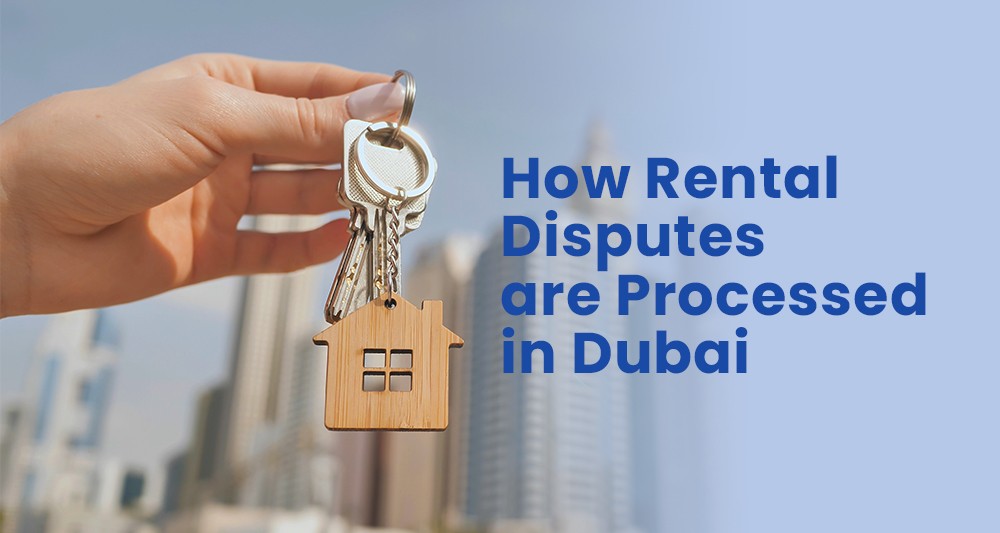
Dispute between owner and tenant is a common thing in any part of the world. Regulations are in place in most of the countries to prevent such clashes and resolve if it occurs. We would be looking at how rental disputes are processed in Dubai. A populace consisting mostly of expats necessitates a strong regulation to control the probable disputes.
What are the Major Causes for Dispute?
Understanding the reasons or causes would be the first step to preventing it. The authorities identified the major causes that may lead to friction between the owner and tenant. The most possible reasons for a rental dispute between the two are:
- Quality issues and defects in the space rented
- Lack of adequate services as promised during the agreement
- Eviction without giving a notice period, or providing sufficient time to the occupant to find another property
- Unauthorized increase in rent, even though the law is clear in the relevant clauses laid down by Dubai authorities
- Misuse of the property by the tenant
- Non-payment of rent properly
- Asking the tenant to vacate the property, without a firm reason
- Unapproved deduction from the security deposit
What is the Rental Dispute Resolution Process in Dubai?
Dubai authorities have a meticulous process for resolving the issues between the property owner and the tenant. The authority will institute the subject measures to offer justice.
Further, the Real Estate Regulatory Agency (RERA) in Dubai, in accordance with Law 26 of 2007, has laid down the rules and regulations regarding rental agreements between the landlord and tenant. It stipulates each involved party’s roles and responsibilities. To evade the possibility of disputes and ease the judgment process even if it occurs.
Role of Rental Dispute Centre (RDC)
The Rental Dispute Centre in Dubai or RDC is the designated body for resolving the subject issues. The committee consisting of specialized members would examine the case and identify the faulty side. All the cases that are beyond mutual resolution can be forwarded t0 RDC. The RDC committee would interfere in the dispute in that case and issue necessary directives, based on the extant laws of the land.
Process of Filing a Rental Dispute with RDC
You need to have all the relevant documents for filing the case with RDC. The list of documents required is enumerated in the next section. All the documents and agreements have to be translated into Arabic (Translation would be done by the approved typing center processing the complaint).
The typing center or the online dispute-processing center would include all the details about the issue. A formal application describing the exact case, and the matter of disagreement between the tenant and owner would be submitted to the RDC. The authority will study the matter and issue a solution to the case. You can check the status through the authority’s website.
There is a provision for submitting an appeal if you are not satisfied with the verdict. The Appeal Section in the RDC would handle the subsequent proceedings in that scenario.
Documents for Filing a Rental Dispute with RDC
Both the originals and copies of documents would be required for filing the complaint and processing the dispute with the Rental Dispute Centre.
- Passport
- Residence Visa
- Emirates ID
- Ejari and Tenancy Contract
- DEWA Bills
- Rental Deposit Proof
- Title Deed
- Copy of Passport of the Property Owner
- Communication between you and the property owner in this regard
Besides the above documents, all the evidence that might support your case may be included in the submission.
Cost of Filing Rental Dispute with RDC
The rental dispute filing in Dubai is not free of cost. It does have a nominal fee. The fees for different services are:
- The complainant has to pay 3.5% of the rent, with a maximum ceiling limit of AED 20K and a minimum of AED 500
- Translation fee of approx. AED 210 per page
- Administration charges of around AED 110
Also Read: Five New Features of New Emirates ID

What is the Stipulated Eviction Process?
Both the tenant and the property owner should abide by the eviction rules existing in Dubai. Not pursuing the same can lead to legal issues and intervention of RDC. It would be better if you check out with the authorities to have detailed info about it.
The owner should:
- Give a notice period of 12 months to the tenant for eviction. The notice should be submitted through an authorized public notary or sent through a registered mail that has proper proof of dispatch and receipt.
- In case of selling the house or listing it for sales, the tenant should be given a 24-hour notice. Nonetheless, this clause should be explicitly mentioned in the rental document and agreed upon by the tenant.
- On the other hand, the tenant also must observe the regulations existing in Dubai. The tenant should:
- Give a notice 90 days in advance before the expiry of the present agreement. Either for amending the present agreement or for vacating the property.
- Maintain the property as indicated in the agreement and undertake the maintenance activities stipulated.
Also Read: UAE Golden Visa
The tenancy laws in Dubai are clear, and strict to preclude the possibilities of dispute. The authority will take stern measures after identifying the guilty party, in case of any issues.







 Know More
Know More